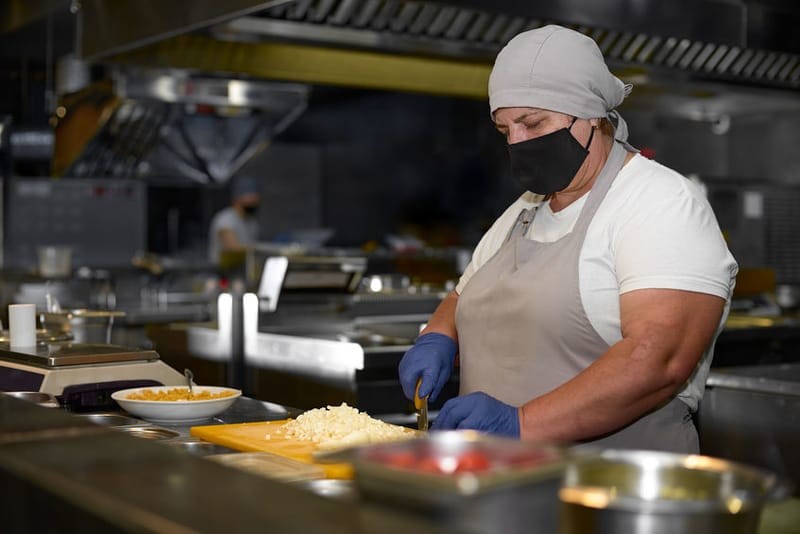Estimated reading time: 3 minutes
COVID-19 has dominated the news since the beginning of 2020, and many food businesses have struggled to find a way to keep their businesses open and continue serving their guests. While much of the food industry has focused on the balance between keeping their guests safe from the coronavirus and making a profit, it’s important not to let food safety management training take a back seat. Relaxing food safety management during these times can result in overlooking risks that could result in foodborne illness.

Keeping Food Safety Management Training a Priority
We understand that it takes a lot of effort to abide by StaySafeMN guidance for restaurants, and it should be a priority, but that can’t be an excuse to relax on other food safety management procedures.
Food safety managers are responsible for making sure staff understand and follow proper food handling procedures and times of reduced service are a great opportunity to monitor and provide a little extra on-the-job training. Since you’re taking the time to make sure employees understand mask rules, social distancing in dining areas and enforcing COVID-19 reservation-only regulations, you should also incorporate food safety training as well.
It’s quite easy to monitor and guide your staff on a few key issues as you go about monitoring coronavirus prevention protocols. Here’s a brief list of items that can be observed at the same time as StaySafeMN procedures:
- Proper sanitation
- Handwashing between tasks
- Employee health
- Hair coverings
Some of these things may look like items your staff should already understand, but during the course of your day, it’s easy to make sure. Food safety managers can enforce and provide training for sanitation procedures since it’s necessary for both coronavirus prevention and food safety. Handwashing can also be reviewed as it can be brought up easily given current circumstances.
When it comes to employee health, sick is sick regardless of whether it’s COVID or not. Daily employee health screenings implant the idea that fever, cough, runny nose, nausea and other symptoms disqualify a food worker from taking their shift. Train your employees to take their temperature before work if not done on-site, be aware of symptoms and call out sick if necessary.
Now that masks are required, kitchen workers must wear two important pieces of protection: a head covering and a mask. When training employees on how to properly wear a mask, you can also teach them the importance of wearing a proper head covering when working with food.


